by middleeastmonitor.com — A Cypriot delegation in Lebanon, on Friday, for talks on maritime border delineation between the two countries said any disputes during that process could be easily resolved, Reuters reports. “There is no problem between Lebanon and Cyprus that cannot be resolved easily,” said Cypriot Special Envoy, Tasos Tzionis, after meeting with outgoing […]
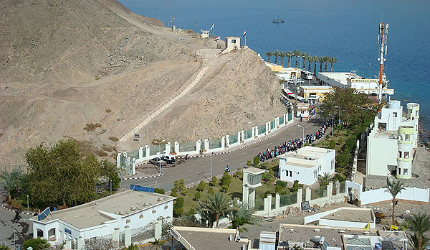
by reuters — BEIRUT — Lebanese and Israeli leaders finalized a U.S.-brokered maritime demarcation deal on Thursday, bringing a measure of accommodation between the enemy states as they eye offshore energy exploration. Leaders from Lebanon, Israel and the U.S. have all hailed the deal as “historic” but the possibility of a wider diplomatic breakthrough remains slim. As a result, there was no joint signing ceremony. Lebanese President Michel Aoun signed a letter approving the deal at his palace in Baabda in the presence of the U.S. official who mediated the accord, Amos Hochstein. “We have heard about the Abraham Accords,” said top Lebanese negotiator and deputy parliament speaker Elias Bou Saab, referring to the 2020 U.S.-brokered normalization of ties between Israel and the UAE and Bahrain. “Today there is a new era. It could be the Amos Hochstein accord.” Israeli Prime Minister Yair Lapid signed separately in Jerusalem, saying the deal was a “tremendous achievement” that had produced Lebanon’s de facto recognition of Israel. “It is not every day that an enemy country recognizes the state of Israel, in a written agreement, in view of the international community,” Lapid told his cabinet in broadcast remarks.
In a pre-recorded interview aired later on Thursday, Aoun said delineating the boundary would prevent war with Israel and that the full status of the southern border would be resolved later through “dialogue.” But he insisted the accord did not constitute a peace agreement with Israel, after having earlier said the deal was purely “technical” and would have “no political dimensions or impacts that contradict Lebanon’s foreign policy.” Lebanon does not recognize Israel’s right to exist and still considers itself at war with its neighbor, with laws barring contact with Israeli officials. It is not every day that an enemy country recognizes the state of Israel, in a written agreement, in view of the international community. — Israeli Prime Minister Yair Lapid “Confidence-building measure” Lower-level delegations from each country headed to the United Nations’ peacekeeping base at Naqoura along their contested land border, which has yet to be delineated.
by famagusta-gazette.com — In the midst of a protracted economic crisis, Lebanese wineries are eyeing the lucrative Chinese market, calling for a joint effort among peers in boosting their sales in China. But tapping a new market requires a big bugdet to be used in areas such as market research, brand promotion and finding the […]
By David Sadler — Today, an official Lebanese delegation is heading to the border area of Naqoura, to deliver the American mediator, Amos Hochstein and the United Nations, a letter signed by President Michel Aoun, including approval of the demarcation of the southern border with Israel in its final form, while the demarcation of the […]
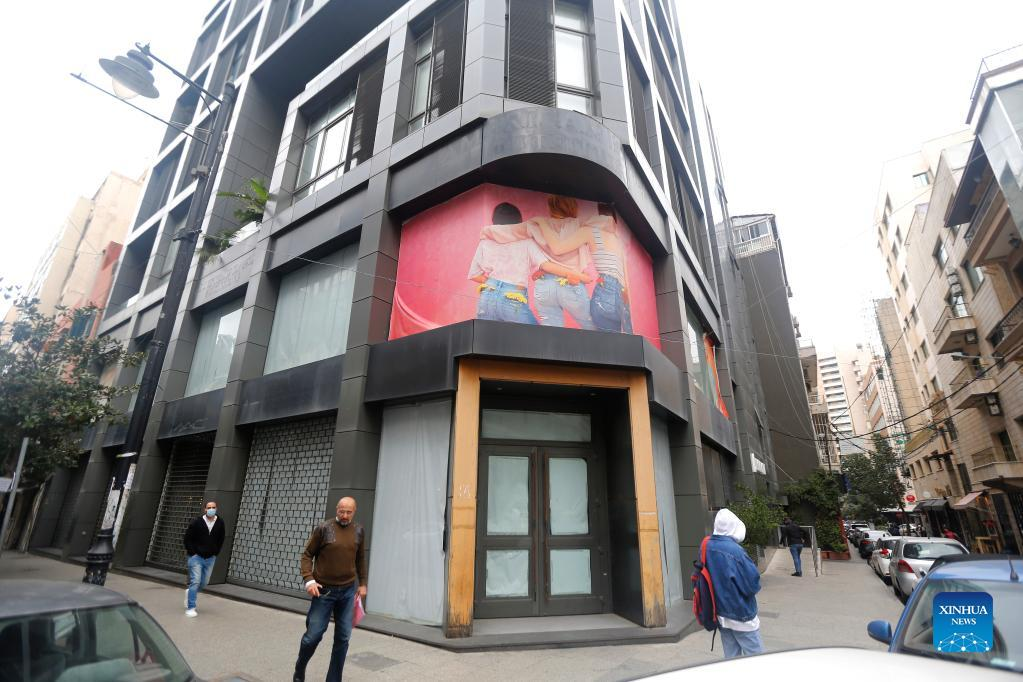
by business-standard.com — Zara owner Inditex has reached an agreement to sell its Russian business to a Lebanese retail and real estate conglomerate, the Spanish fashion giant said on Tuesday in a statement to the country’s competition authorities. The buyer is Daher Group and the potential purchase is pending approval from Russian authorities, Inditex said, without disclosing financial details.
Inditex halted its business in Russia on March 5, shortly after Russian President Vladimir Putin ordered the invasion of Ukraine at the end of February. Following other western brands, the fashion retailer closed its 502 shops and stopped online sales. Tuesday’s announcement marks the end of Inditex’s business in Russia, although the retailer said it would consider returning through a franchise collaboration with Daher if market circumstances changed. The statement to CNMC, the commission that oversees competition in Spain, made no direct reference to the war in Ukraine. The sale agreement includes the transfer of most of the lease contracts of its existing stores, which Inditex says will enable the preservation of a substantial number of jobs generated by the group. Founded in 1975 by Amancio Ortega, Inditex’ rapid success hinged on the ability to serve new fashion collections in record time. It currently operates several brands globally, including Massimo Dutti, Bershka, Pull & Bear and Oysho.
About Daher Group
The Lebanese Daher family have become billionaires by opening 55 fashion and lifestyle brands in 14 countries in the Middle East and North Africa. The Daher brothers — Wassim, Said, and Hasan — own Azadea Group, a Beirut-based company that own and manage 600 retail outlets, including Max Mara, Sunglass Hut, Massimo Dutti, and Zara, among others. Azadea’s largest collection of stores are in mega malls in the United Arab Emirates, which is the company’s most profitable country, according to a former Azadea senior executive. The company employs 11,000 people and the brothers are estimated to have a fortune of at least $1.4 billion, according to the Bloomberg Billionaires Index. Wassim Daher founded the company in 1978 as a multi-brand clothing store in Hamra Beirut. His brother Hasan and Said later joined the company as managing director and chief executive, respectively.
by naharnet — The Syrian government on Monday apologized for not being able to receive Wednesday a Lebanese delegation that was supposed to discuss the issue of sea border demarcation between the two countries, an official Lebanese source said. The Syrian government said the apology is related to “previously-scheduled appointments,” Al-Jazeera TV quoted the source […]
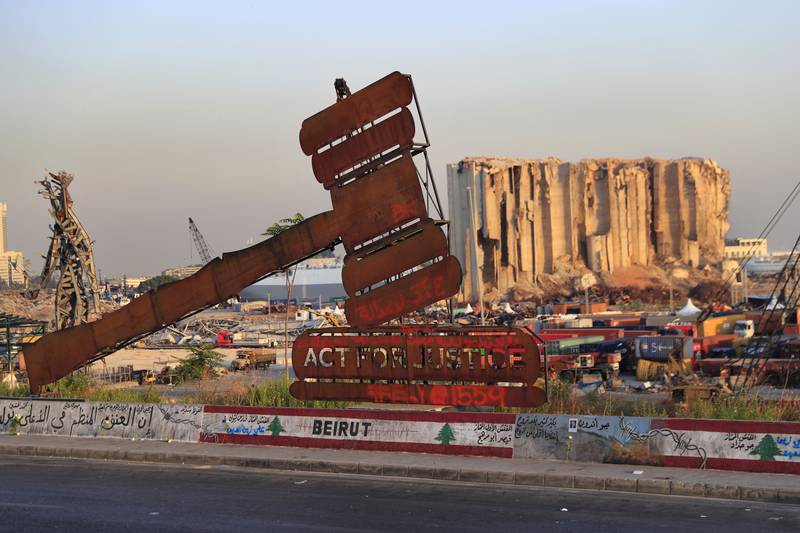
by english.alaraby.co.uk — MENA — Lebanon’s parliament failed on Monday for a fourth time to elect a successor to President Michel Aoun, with lawmakers divided over a candidate opposed by the powerful Hezbollah movement. Already governed by a caretaker cabinet, crisis-hit Lebanon is hurtling towards an imminent power vacuum, with just days before the current president’s term finishes at the end of the month. Parliament speaker Nabih Berri called for another vote on Thursday in the hope of overcoming long-running arguments. A total of 50 lawmakers in Lebanon’s 128-seat parliament left their votes blank, many from Iran-backed Hezbollah and its allies. Their rivals mostly backed lawmaker Michel Moawad, whose father René Moawad was a former president. He has emerged as a frontrunner since parliament first met to name a president last month. But Moawad, who won 39 votes on Monday, was still was far short the 86 ballots – two-thirds of seats – needed to win.
University professor and activist Issam Khalife took 10 votes, cast by independent lawmakers who emerged from a mass 2019 anti-government protest movement, as well as others. But the required quorum was lost before a second round could be held, after some lawmakers walked out – a recurring scenario in past votes. Moawad’s supporters accused Hezbollah and its allies of obstructing a second round of voting to negotiate with other blocs, effectively preventing the election. “No bloc in parliament can impose a president, not Hezbollah nor anyone else,” said Elias Hankash, a lawmaker from the Kataeb Party that supports Moawad. Hankash accused lawmakers who left parliament of “systematic disruption”, because there were not enough lawmakers to make a vote legitimate.
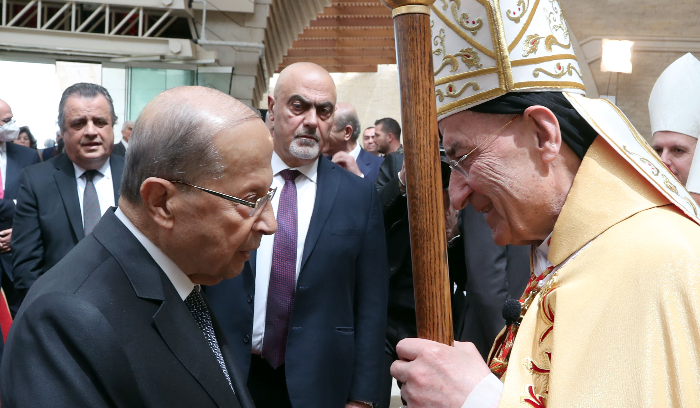
By Elias Turk Beirut, Lebanon – cna — – Lebanese President Michel Aoun this week called on French company Total Energy to begin exploring for natural gas after a major diplomatic breakthrough between Lebanon and Israel. The two countries recently announced a draft deal that could end a long-running dispute affecting the oil-rich maritime border between the two countries. For Lebanon’s president, a Christian, this was a rare bit of potentially good news in recent months, if not years. The ongoing turmoil and insecurity affecting the Christian community in an economically unraveling Lebanon is the consequence of long decades of political corruption, a constantly destabilized Middle Eastern country, and short-sighted governmental planning. Economic chaos followed the events of October 2019, when the Lebanese government imposed new taxes on tobacco, gasoline, and smartphone apps for making calls, including WhatsApp. This caused nationwide protests that eventually led to the government’s resignation — and made the nation’s liquidity crisis fully apparent.
The fragile Lebanese economy fell into hyperinflation. Then COVID-19 began spreading in the country in February 2020, deepening the crisis, and an explosion in Beirut’s port on Aug. 4, 2020, killed nearly 230 people and injured approximately 6,000 more, destroying tens of thousands of apartments. For the nation’s Christian community, these developments have added yet another layer of strain and anxiety to the constant existential threat they have been facing for decades in the Middle East. This month brought another reminder of the community’s vulnerable condition. The end of October marks the expiration of the Lebanese president’s six-year term. The presidency has been held by a Maronite Catholic since 1943. With no new candidate elected yet, a constitutional void at the level of presidency is expected from the first of November.
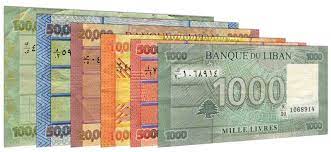
by asumetech.com — The Central Bank of Lebanon said today, Sunday, that it will stop buying dollars through its “exchange” platform, starting October 25, until further notice. The statement added that the bank will continue to sell dollars exclusively through its platform, according to Reuters. Bankers said the move aims to support the Lebanese pound after it traded to a new low of over £ 40,000 per dollar last week. The lira has lost more than 95 percent of its value since 2019, when it was valued at 1,500 before the country’s economic meltdown began.
The Lebanese financial crisis, which has lasted for three years, has pushed three quarters of the population into poverty, as food prices have risen more than 11 times, with the latest price hike in supermarkets in recent days. Having pegged the currency for decades, the Central Bank of Lebanon currently offers multiple exchange rates, including a flexible exchange rate. It is worth noting that Lebanese Finance Minister Youssef Al-Khalil said the state should not be “solely” responsible for paying depositors whose deposits have been frozen by the economic crisis.
NNA – President of the Republic, General Michel Aoun, met Deputy Speaker of Parliament Elias Bou Saab. The President awarded Deputy Speaker Bou Saab the National Order of the Cedar at the rank of Senior Officer, in appreciation of his patriotic contributions and the effective role he played in the course of the recent negotiations […]



